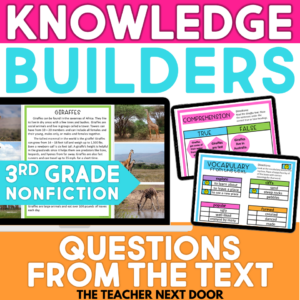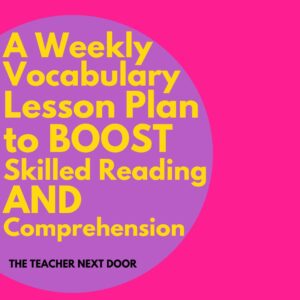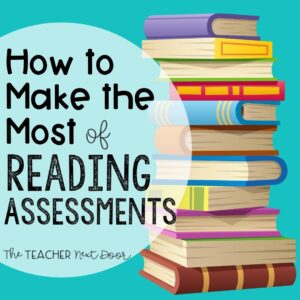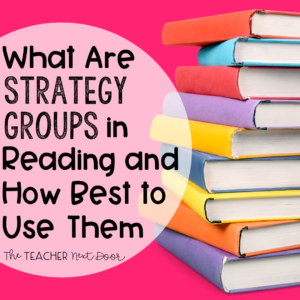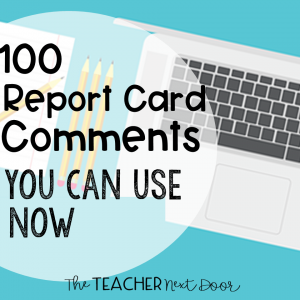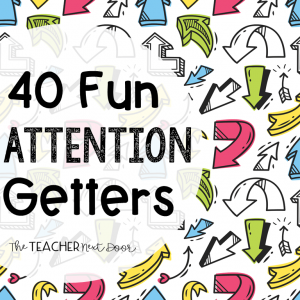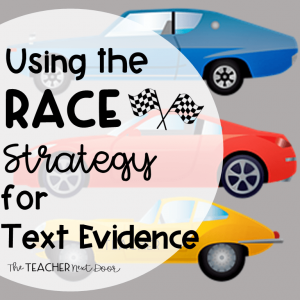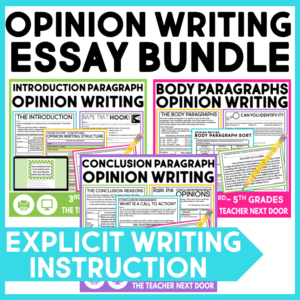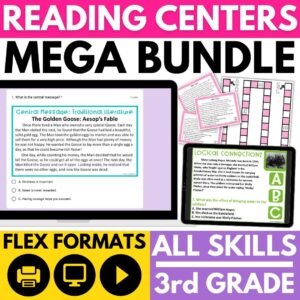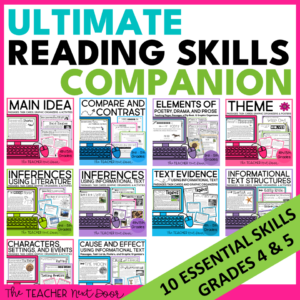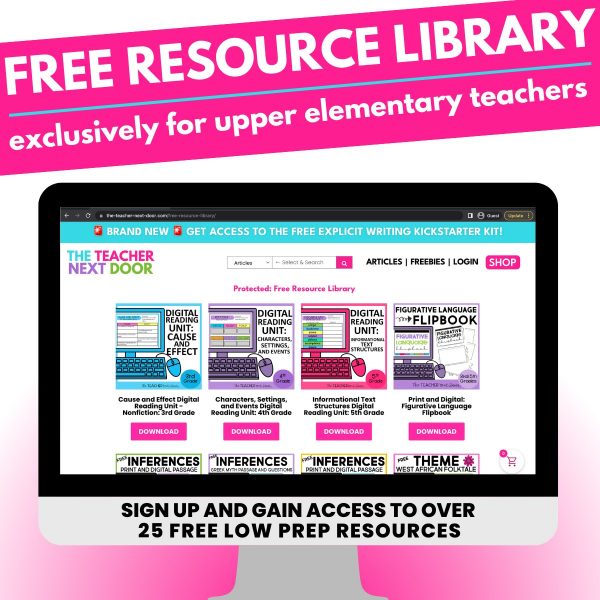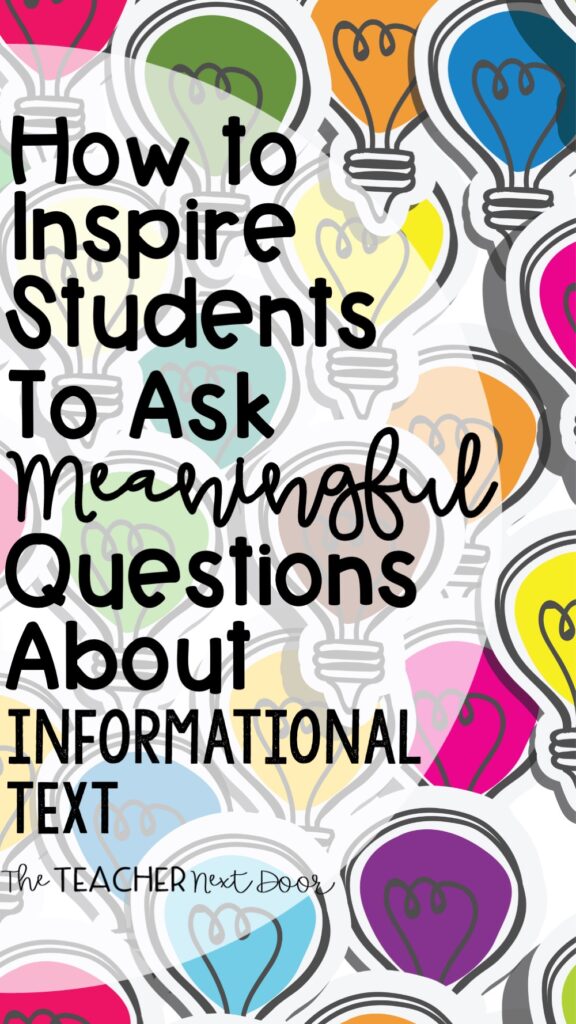
Most teachers out there would agree that questioning is an essential part of reading comprehension. Students have to be able to answer questions about what they read and to be able to ask questions of their own. It’s one of the most basic ways that teachers assess a student’s understanding.
If you have already worked on asking and answering questions when reading literature, making the jump to doing this with informational text will be a snap! If anything, it comes a little more easily with nonfiction than it does with fiction.
Nonfiction texts already include lots and lots of facts about the topic, and most kids’ brains are going to want to find out more! Asking questions about informational text is also modeled in the real world A LOT, so students know what it sounds like.
Keep reading for a few of my favorite tips for inspiring your students to ask and answer meaningful questions when reading informational text!
Question Types
It’s important to start out by talking about the different types of questions that can be asked. Not all questions are equally hard or easy to answer, some require deeper thinking, beyond what the text says.
On one hand, you have explicit questions, which have an answer stated directly in the text. This is usually a question related to a fact or figure (ex: What do Panda bears eat? How much does a baby panda weigh at birth?) and answers to these questions are stated directly. Mop
There are also implicit (or inferential) questions, which require me to make an inference using some of my own background knowledge and evidence from the text to formulate my answer?
Often, implicit questions begin with how or why and require that students read between the lines a little to come up with an answer.
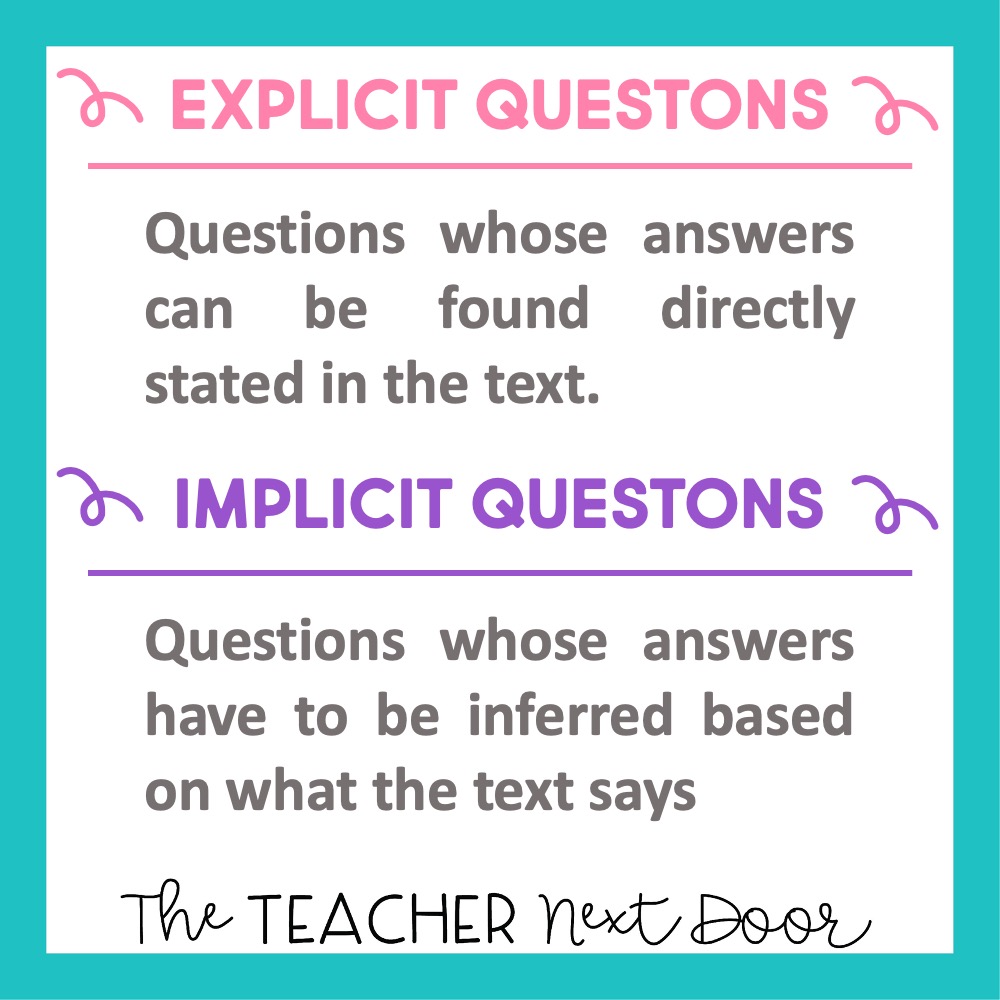
Write it Down!
Having students write down their questions as they read will help them keep everything organized. It provides a concrete way for students to keep track of their thoughts while reading. (Of course, it seems like it would be easy enough to remember questions, but they can easily slip out of your memory- especially when learning new information!)
Having a written record of questions will also allow students to determine if their question was answered by the text, and help them to see what types of questions they are asking. This way, if all of the questions are literal, you can easily ask a kiddo to stretch themselves and try to think of one inferential question.
Scaffolding
Another way to really support your readers with developing this skill is to provide a lot of scaffolding with the questions that you ask. There are tons of different ways to do this!
Sometimes the way a question is worded can make it more straightforward for students. For example, instead of asking, “How are [this thing] and [that thing] similar, and how are they different?” you could simply say, “What are the differences between [this thing] and [that thing]?” This will guide students to look for differences, they won’t have to worry about looking at similarities when answering this question.
You could also ask questions specifically about one paragraph or section of the text. (Ex: What is the main idea of paragraph one?) This takes away some of the overwhelm that kids might experience when learning a new skill…they don’t have to search the whole passage, but instead, they know to go look at paragraph one.
Emphasize Answering Questions
Equally as important as teaching about how to ask questions is teaching how to answer questions using evidence from the text! For many students, having to cite text evidence from the text is going to be a bit more difficult.
This is important for both explicit and implicit questions- even if the answer isn’t directly stated in the text, you still have to be able to show what part of the text made you answer in the way that you did.
If you are looking for a way to get your students practicing asking and answering questions, check out this Digital Reading Questions from the Text. These are high-interest, digital reading passages that include a variety of different comprehension questions.
All of the answers are found in the text, and it’s the perfect way to practice this skill!

Interested in reading more?
Text & Illustrations: Why Pictures Really Are Worth A Thousand Words
Character Traits & Story Events: How to Help Students Discover a Meaningful Connection
Point of View: Why It’s Tricky, Why it Matters, and How to Help Students Understand
Stories, Poetry, & Drama: Fun, Effective Ways to Review Throughout the Year
Standards Alignment:
Common Core State Standard RI.3.1 – Ask and answer questions to demonstrate understanding of a text, referring explicitly to the text as the basis for the answers.

